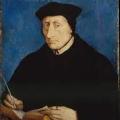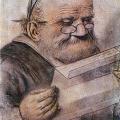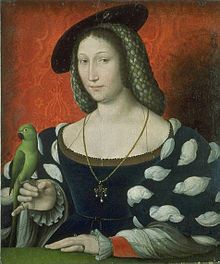398. Pearls of Wisdom: Marguerite of Navarre
A Renaissance queen supports philosophical humanism and produces literary works on spirituality, love, and the soul.
Themes:
• P.A. Chilton, Margaret of Navarre: the Heptameron (Harmondsworth: 1984).
• R.C. Cholakian and M. Skemp (trans.), Marguerite de Navarre: Selected Writings (Chicago: 2008).
---
• P.F. Cholakian and R.C. Cholakian, Marguerite de Navarre: Mother of the Renaissance (New York: 2006).
• G. Ferguson, Mirroring Belief: Marguerite de Navarre’s Devotional Poetry (Edinburgh: 1992).
• J. Gelernt, World of Many Loves: the Heptameron of Marguerite de Navarre (Chapel Hill: 1966).
• P. Jourda, Marguerite d’Angoulême, duchesse d’Alençon, reine de Navarre (1492–1549): Etude biographique et littéraire, 2 vols (Geneva: 1978, originally published 1930).
• J.D. Lyons and M.B. McKinley (eds), Critical Tales: New Studies of the Heptaméron and Early Modern Culture (Philadelphia: 1993).
• I. Silver, “Marguerite de Navarre and Ronsard,” Bibliothèque d’humanisme et renaissance 55 (1993), 527-46 and 56 (1994), 7-25.
• C. Thysell, The Pleasure of Discernment: Marguerite de Navarre as Theologian (Oxford: 2000).







Comments
Episode number
Shouldn't this be 397 ?
In reply to Episode number by Michael Tavuzzi
Episode number
Oh thanks for catching that! The number was right but I had mistakenly put it under the Central Europe episodes rather than France. Should be fixed now!
Evangelicals?
I'm confused by this episode. You were talking about evangelical Protestants here? But evangelicals as a thing was centuries later.
In reply to Evangelicals? by Joshua Hillerup
Evangelicals
Sometimes the early Protestants are also called "evangelicals" in secondary literature, and they used this term themselves. I just threw it in there so I didn't have to keep saying "reformers" over and over. But if it is misleading maybe I should take that out for the book version?
In reply to Evangelicals by Peter Adamson
Evangelicals
I think you might want to have a brief aside maybe. I'm sure experts in the period would get it, but the general public would probably find it confusing.
In reply to Evangelicals by Peter Adamson
Evangelicas
I think that the term 'evangelicals' has a very specific modern meaning in a North American context. My experience is that it is not similarly so for the rest of the world. I did not find it misleadning at all in the context of the podcast.
Add new comment